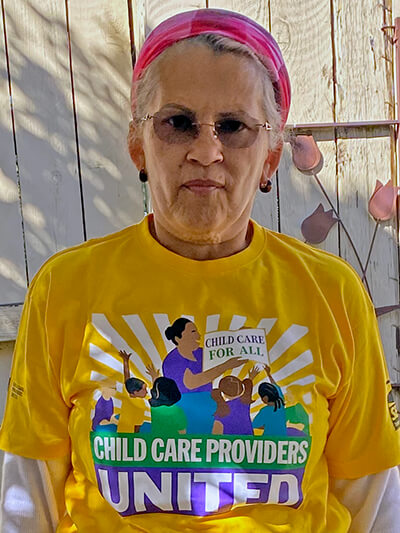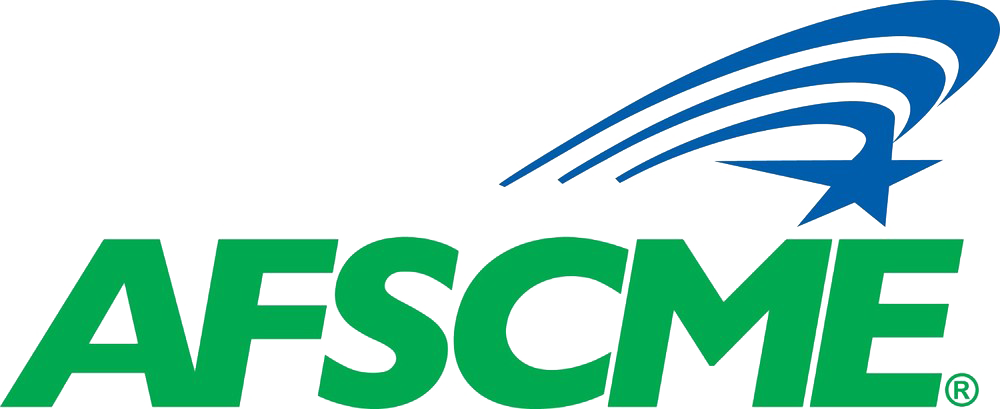
Ana María Santiago (Photo credit: UDWA)
When AFSCME members are put to the test, we show that we never quit on our communities. Since the pandemic began, front-line workers across the country have risked everything to keep their communities safe and win the war against the virus. That includes child care providers.
“We kept our doors open, we were considered essential workers,” says Ana María Santiago, who runs Santiago’s Family Child Care in Santa Barbara, Calif. “The truth is, we helped support the entire economy because without child care providers, where would other essential workers leave their children so they can get to work?”
That’s why Congress must do more to support them. In November, the House of Representatives voted to approve the Build Back Better Act, which would help families cover the costs of child care, provide universal pre-kindergarten to 3- and 4-year-olds, and help raise wages and workplace standards for child care providers, among other things. To read AFSCME’s summary of the legislation, click here.
AFSCME members have renewed their resolve to make this bill a reality.
“We need this support,” Santiago says. “Our families need this support.”
For decades, the cost of child care has rising nearly twice as fast as other family expenses. In communities across the country, child care is now more expensive than in-state tuition at a public four-year university. Meanwhile, the median pay for child care workers was just $12.24 per hour in 2020, and child care providers often rely on public assistance to make ends meet.
“We deserve to make better wages,” Santiago says. “We shouldn’t always be struggling. I should be able to hire another assistant. And we should have benefits. Right now, we don’t have health care coverage or retirement benefits.”
Through their union, Child Care Providers United (UDW/AFSCME), Santiago and thousands of child care providers across California have made important progress in recent years. In 2021, they achieved their first-ever contract with the state, which subsidizes such care for lower-income families. Among their victories were at least a 15% increase to their reimbursement rates, the creation of Joint Labor-Management Committees to address long-term issues of concern, and a $40 million training fund.
Santiago says their union has helped providers raise their profile.
“We are beginning to be recognized as what we are: professionals,” she says. “We play an essential role in children’s lives, and I like that we are being recognized as the educators that we are. But our fight isn’t over. We need more people in Washington to support us, and to show us the respect we deserve.”
AFSCME strongly supports the Build Back Better Act. As AFSCME President Lee Saunders said after the House voted to approve the bill, “On the other side lies a better and brighter future where our most basic needs — child care, home care, health care and housing — aren’t privileges, but rights.”

